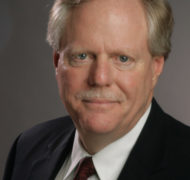Jack Van Hartesvelt on Transparency in Negotiations
Article / Produced by TOW Project
Jack van Hartesvelt is vice president of a real estate development trust fund and former vice president of Westin Hotels. In both positions he has been responsible for negotiating multi-hundred million dollar deals. But he decided he wanted more transparency in the process of negotiations. He tells what happened the first time he tried it[1]:
Interview with Jack Hartesvelt: click here to watch. |
I have been involved in many contract negotiations. I am not a lawyer, but I am with them all the time, in this constructive confrontation. Here’s the way it typically works. If I want to get a 3 percent fee, I would tell the other side that I absolutely must have 4 percent, recognizing that they are going to have to drag me down to 3 percent to feel like they “won.” The whole negotiation is based on a lie.
This had been wearing on me for a long time and, in 1992, I decided I didn’t want to do negotiations the standard way anymore. Part of this came from a bad experience I had had, where I really took advantage of someone—completely legally. But I didn’t like the result. The second part came from my faith—there was this dissonance between what I believed in that part of my life, and what I did in the rest of my life. I told our lawyers, “I think that there is a fair deal out there for everybody, and I want to actually make sure everybody gets what they bargain for. I am not going to say I want something when I don’t really want it, and I don’t want someone’s legitimate interests to be undermined.”
The lawyers told me I couldn’t do that. The board of directors expected me to put these projects together for our benefit, only protecting the interests of our company. They said they wouldn’t work with me unless I got permission from the board to amend the approach. In fact, the board didn’t realize all of the twisting and turning that went into a typical contract negotiation, and to their credit they just said, “Yes. Those are actually our values, too.” I do not think they realized how hard it is to do that sometimes.
The first negotiation I did after that was on a project in the South with two real estate developers who were really struggling due to an economic downturn. They had lost some of their properties, others were embattled. They were locked in unpleasant confrontations with lots of bankers, lawyers, and partners. It was a very difficult time for them. I walked in and said, “Here is the way I want to do the deal. I want this to be a deal that is good for both of us, so I will look out for you and I want you to look out for me.” They looked at me skeptically and said, “Right, sure.”
Early in the negotiation I said, “If you turn to page 3, section 1.2.5, it says your development fee is 3 percent, but if you go over the development agreement here, it says that if you are ever in default for any reason, you can never recover your fee. I think that could deprive you of what you actually earned, so I would like to change this provision here or that provision there so that I cannot legally take away what was rightfully yours.”
They laughed uneasily, but of course agreed to the change. A little further in the negotiations, I pointed out another combination of provisions that could be bad for them. They looked at me as if to say, “Who are you? What is going on?” I reminded them that I wanted this deal to work out for both of us and would be most grateful if they could find something that might not be good for me. They did not do it, not right away anyway, but I really wanted to do this thing right. I was pumped, and so I never backed down. By the end, they also identified some provisions that would be better for our side.
The project ended up doing very, very well. In the end, we made a $20 million profit; they got half and we got half. These two developers who were on the brink of bankruptcy at that point in time came out very well, and so did we. They told me later that the approach to the negotiation also changed them, and that they decided that they want to do business like that in the future. We developed a lifelong relationship.
For an extended conversation with Jack on this topic, see "Jack Hartesvelt - Hard Choices for the Long Term" in the Nov.-Dec. 2012 issue of Ethix.





